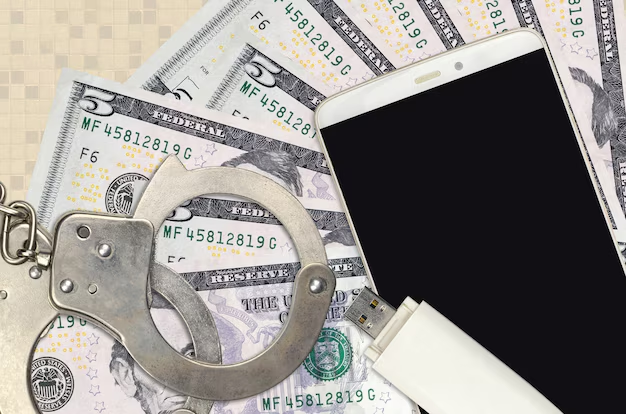Unveiling the Truth: Is Forex Trading a Scam?
When we talk about investments, Forex trading often emerges as a mysterious arena with an allure of quick riches wrapped in a veil of skepticism. People frequently wonder, "Is Forex a scam?" It's an essential question, especially for those curious about venturing into the world of currency exchange. Let's delve into this topic, peeling back layers to reveal how Forex trading works, the potential pitfalls, and how to navigate the market wisely.
What is Forex Trading?
Forex, or foreign exchange, is the global marketplace for buying and selling currencies. With a daily trading volume surpassing all other financial markets, Forex offers opportunities and challenges alike. Understanding its fundamentals can help mitigate confusion and avoidance of potential scams.
The Basics of Forex
- Currency Pairs: Forex trading is conducted in currency pairs, such as EUR/USD or GBP/JPY, indicating how much of one currency is needed to purchase another.
- Market Hours: Operates 24/5 across major financial centers worldwide—allowing almost round-the-clock trading.
- Leverage: Traders often use leverage to increase their purchasing power. While it can amplify profits, it also raises the stakes for potential losses.
Understanding these basics provides a foundation for recognizing legitimate practices versus potential scams.
Common Forex Scams
Like any lucrative market, Forex is not immune to fraudulent schemes. Educating yourself about these common scams can act as a shield against falling prey to them.
The Promises of Guaranteed Returns
It's a major red flag when you encounter services that promise "guaranteed returns" on your investments. In reality, Forex is a volatile market, and no one can promise consistent, high profits without risk.
Signal Sellers and Managed Accounts
- Signal Sellers: These entities sell recommendations on when to buy or sell a currency pair. Often, their claims of expertise aren't backed by reality, and inexperienced traders can suffer losses.
- Managed Accounts: Be wary of offers from individuals or companies claiming to trade on your behalf with incredible returns. Lack of transparency and accountability is a common theme here.
Unregulated Brokers
Trading with unregulated Forex brokers can lead to vulnerabilities. Regulated brokers are audited and must adhere to specific standards, offering traders a layer of protection.
How to Spot a Scam
Awareness is crucial when navigating the Forex landscape. Here are tips to identify illegitimate operations:
- Verify Regulatory Credentials: Check if the broker is regulated by a recognized authority. Warning signs include brokers based in jurisdictions known for lenient financial laws.
- Conduct Background Checks: Research the broker's history, reviews from other traders, and presence on formal financial forums.
- Understand the Terms and Conditions: Scrutinize the fine print of any agreements. Look for transparency about fees, withdrawal conditions, and terms of service.
Practical Consumer Tips 🛡️
- 📝 Do Your Homework: Research the Forex market thoroughly before engaging.
- 🔍 Check Regulation: Ensure brokers are regulated by reputable authorities.
- 🛑 Avoid Overly Complex Promotions: Understand all terms before committing.
Is Forex Trading Legitimate?
While scams exist, Forex itself is not a scam. It’s a legitimate form of investment trading that requires awareness, education, and caution.
The Role of Education
Educating yourself is the most reliable strategy to succeed in Forex trading. Courses and workshops can help develop the skills necessary to trade responsibly and profitably.
Tools and Resources
Numerous free and paid resources exist to assist with trading. Learning platforms and demo accounts provided by reputable brokers help hone your skills without financial risk.
Essential Strategies for Safe Forex Trading
Once you identify a reliable platform, certain strategies can mitigate risk while engaging in Forex trading.
Setting Realistic Expectations
- Profit Potential: While substantial profits are possible, so are losses. It’s vital to have realistic financial goals.
- Learning Curve: Expect an ongoing learning journey. The market evolves, and staying informed is crucial.
Risk Management
- Diversification: Avoid putting all your investment in one currency pair.
- Use of Stop-Loss Orders: These orders automatically close a position at a certain loss point.
Demo Trading
Before going live, practice with a demo account. It allows you to try strategies in a risk-free environment.
Key Takeaways for Forex Success 💪
- 📚 Continuous Learning: Ongoing education is critical.
- ⚖️ Balanced Approach: Combine technical with fundamental analysis.
- 🛡️ Protect Your Investment: Implement robust risk management tools.
Understanding the Market Dynamics
Forex trading is intertwined with global events, economic analytics, and shifting market sentiments. An adept trader is attentive to:
- Economic Indicators: Monitoring economic releases (e.g., GDP, employment reports) can provide insights into future currency movements.
- Geopolitical Events: Political stability or instabilities, such as elections or conflicts, often influence currency strength.
Finding Trustworthy Brokers
Establish relationships with brokers who demonstrate transparency and compliance with financial regulations. Verified reviews from credible forums can provide additional insights into a broker's reliability.
Visual Summary: Identifying Safe Forex Practices 📊
| Checklist |
|---|
| 📋 Verify broker regulation |
| 📈 Practice with demo accounts |
| 🔍 Read reviews and perform due diligence |
| 🛡️ Understand market fundamentals and risks |
Conclusion: Navigating Forex Wisely
Conclusively, Forex trading is not inherently a scam. However, it carries risks, much like any investment opportunity. The key to distinguishing between genuine opportunities and scams lies in conducting thorough research, opting for reputable brokers, and maintaining a disciplined approach to trading. By embracing continuous learning and applying sound strategies, you can engage in Forex trading safely and potentially profitably, making it a robust part of your financial portfolio.
Regardless of your trading ambition, remember to align your efforts with informed, strategic planning to enhance your chances for success in the vast world of Forex markets.

